Ever had one of those weeks where everything’s clicking your job’s steady, relationships are smooth, health’s on point and then bam, this weird anxiety creeps in? Like, “This feels too good… what if it all crashes?” Your brain starts whispering all the ways it could go wrong, and suddenly you’re braced for a storm that hasn’t even shown up. That’s the anxiety of good times, and if you’re in your 20s or 30s juggling life’s ups and downs, it might hit you harder than you think. In this article, we’ll unpack why calm moments can trigger fear, how your nervous system plays a role, and gentle ways to embrace peace without waiting for the other shoe to drop.

We’ll cover the roots of this anxiety, real stories from folks who’ve been there, and practical tips to soften it, plus how to build nervous system safety so you can actually enjoy the good stuff. For more on handling that nighttime brain chatter that amps up these fears, check out our post on Why Can’t I Turn My Brain Off? Dealing with Overthinking at Night. And Psychology Today has a solid take on why positive change can feel threatening. Oh, and we’ve got a quick self-assessment quiz coming up to help you spot if this anxiety’s sneaking into your good days take it to see if it’s time to address it. Ready to stop sabotaging your happy moments?

Mental Wellness Test
Where Does Your Mind Need the Most Support?
Discover your emotional health in under 4 minutes.
Find out if what you’re feeling is:
burnout, anxiety,trauma
or just too many open tabs in your brain.
No pressure – Just clarity
Why Good Moments Trigger Anxiety
It’s kinda ironic, right? Life’s finally smooth, but your brain decides that’s the perfect time to panic. This anxiety when things are going well isn’t random it’s your survival wiring kicking in. Back in the day, calm meant you could relax, but if you’ve been through tough stuff, your brain might see peace as a setup for the next hit. It’s like it’s always scanning for threats, even when there are none.

Past trauma or stress can make this worse. If you’ve dealt with loss, betrayal, or just a chaotic childhood, your nervous system might not trust stability. It’s used to chaos, so calm feels unfamiliar almost unsafe. Healthline says this is called “anticipatory anxiety,” where you’re bracing for bad news because good feels too fragile.
For me, it showed up after I got a promotion last year. Everything was great better pay, cool projects but I couldn’t shake this feeling that it was all gonna fall apart. I’d lie awake thinking, “What if they realize I’m not that good?” It wasn’t logical, but my brain was like, “Don’t get comfortable danger’s coming.” 😅
Perfectionism plays a role too. If you’re a perfectionist, good moments might feel like you’re not “earning” them, or you worry you’ll mess it up. And let’s not forget cultural stuff in a world that glorifies hustle, resting in good times can feel like slacking.
How the Nervous System Interprets Calm
Your nervous system’s like a guard dog, always on watch. When life’s calm, it should relax, but if you’ve been in survival mode, calm can feel like a trick. The polyvagal theory explains this your nervous system has three states: safe (ventral vagal), alert (sympathetic), and shutdown (dorsal vagal). If you’ve spent a lot of time in alert mode, calm can flip you into shutdown, where you feel numb or anxious.
This is why good moments can trigger that “shoe drop” feeling. Your body’s braced for the next crisis, even if there’s no sign of one. The Calm Blog says prolonged stress can make your nervous system forget how to relax, leading to that constant “what if” whisper.
I felt this after a peaceful vacation. Instead of recharging, I spent the last day worrying about work emails piling up or something going wrong at home. My body was so used to stress, calm felt wrong.
Physical signs can show up too like a tight chest, racing heart, or even headaches. It’s your body’s way of saying, “We don’t trust this yet.” But with practice, you can teach it to chill.
Signs You Might Struggle with Good Times Anxiety
Not sure if this is you? Here are some signs that anxiety’s sneaking in when life’s going well:
- Waiting for Bad News: Even after good news, you’re like, “Okay, what’s the catch?”
- Over-Planning for Disasters: You make contingency plans for stuff that probably won’t happen.
- Sabotaging Stability: You pick fights or create drama when things are calm. I did this in a relationship things were great, so I started nitpicking over small stuff.
- Feeling Unworthy: You think, “I don’t deserve this,” and brace for it to end.
- Mental Rehearsals: Your brain plays out all the ways it could go wrong.
If you’re in your 20s or 30s, this might hit harder with life pressures like career or relationships. A friend of mine in her 30s got a dream job, but she couldn’t enjoy it she kept waiting for the layoff. It wasn’t until she recognized the pattern that she could start to relax

The Impact of This Anxiety on Your Life
This anxiety isn’t just a nuisance it can mess with your whole vibe. Here’s how:
- Mental Health Strain: Constant bracing for bad news keeps your stress levels high, leading to burnout or depression. It’s like you’re always on edge, even when you don’t need to be.
- Relationship Issues: You might push people away, thinking closeness will lead to loss. Or you create conflict to “prepare” for the worst.
- Physical Health Hits: Chronic anxiety can cause sleep problems, headaches, or even weaken your immune system. Bradley University says poor mental health can up heart disease risk by 67%.
- Missed Joy: You can’t fully enjoy good moments because you’re waiting for them to end. It’s like eating a delicious meal but worrying about the bill the whole time.
- Self-Sabotage: You might undermine your success, like picking fights or overworking, to “control” the downfall.
I saw this in my own life after getting a promotion. Instead of celebrating, I worked even harder, worried it’d be taken away. I missed out on the joy because I was too busy bracing.
Why Modern Life Makes It Worse
Today’s world doesn’t help. Social media’s full of “perfect” lives, making your good moments feel like they’re not enough. You’re seeing everyone’s highlights, thinking, “Why isn’t my life like that?” Plus, hustle culture says you should always be grinding, so calm feels like slacking.
The 24/7 news cycle keeps you on high alert with bad news, making it hard to trust good times. And in your 20s or 30s, with career pressure and life changes, that “what if” voice is louder than ever. It’s like the world’s designed to keep you anxious.
How to Soften Anxiety During Calm Periods

Good news: you can learn to trust calm. Here are five practical ways to soften that anxiety and enjoy the good without waiting for the bad:
1. Normalize Your Brain’s Reaction
Your brain’s not broken it’s just protecting you. When anxiety hits, say, “My nervous system’s not used to peace. This tension’s learned, not truth.” This helps you see the fear as a habit, not reality.
I started doing this after a great week at work. When the “what if” thoughts came, I said, “Thanks for looking out, brain, but we’re safe now.” It didn’t stop the thoughts, but it made them less powerful.
2. Rewire Safety Associations
Train your brain to see calm as safe by noticing “safety signals” daily. Journal: “What feels safe right now?” Like, “My coffee’s warm, the sun’s shining, I’m breathing.”
I keep a “safety jar” with notes of calm moments, like “Cuddling with my cat.” On anxious days, I read them to remind my brain peace is real.
3. Separate Preparation from Catastrophizing
It’s okay to plan for possibilities, but don’t let it turn into emotional rehearsals of disaster. Focus on facts, not “what ifs.”
When I got a new apartment, I worried about everything going wrong. Instead of spiraling, I made a simple plan: “If something breaks, I’ll call the landlord.” It kept me grounded.
4. Build Nervous System Flexibility
Your nervous system needs practice feeling safe in calm. Try grounding exercises: inhale for 4, hold for 4, exhale for 4. Or use mantras like, “Good doesn’t mean danger’s coming.”
I do this every morning a quick breath work session to start the day calm. It’s like training my body to trust peace. The Calm Blog says this can reduce anxiety by calming your fight-or-flight response

5. Explore Subconscious Beliefs
Dig into why you don’t trust good times. Therapy or journaling can help: “Do I believe I deserve stability?” Challenge those beliefs with evidence from your life.
I realized my anxiety came from a childhood where good times were rare, so I didn’t trust them. Journaling helped me see I’ve earned my peace, and it’s okay to enjoy it.
The LGBTQ+ Perspective on Good Times Anxiety
For folks in the LGBTQ+ community, anxiety during good times can be even trickier. Navigating discrimination, family rejection, or identity struggles can make calm feel like a temporary truce. A queer friend of mine said when things were going well in their relationship, they’d worry about external hate ruining it. It was like they couldn’t fully relax because the world’s not always safe.
Finding affirming spaces, like LGBTQ+ support groups, can help. My friend joined one and started sharing their fears, realizing they’re not alone. If you’re part of the community, seek out places where you can celebrate good moments without fear it’s like a shield for your heart.

The Science Behind It
This anxiety isn’t just in your head it’s in your brain and body. When life’s good, your amygdala (fear center) might stay on alert if you’ve experienced trauma, scanning for threats even in calm. This is called hypervigilance, where your nervous system doesn’t trust peace. Psychology Today says it’s common after tough times, as your brain’s used to chaos.
Cortisol, the stress hormone, can stay high, making you brace for bad news. A 2019 study in Nature Reviews Neuroscience found that chronic stress rewires your brain, making it harder to relax in good moments.
But mindfulness can help. A 2014 meta-analysis in JAMA Internal Medicine showed mindfulness reduces anxiety by 30% by calming the amygdala. Breathwork or grounding exercises can lower cortisol, helping your nervous system learn calm is safe.
Here’s the data:
| Impact | Statistic | Source |
|---|---|---|
| Anxiety Reduction | 30% decrease with mindfulness | JAMA Internal Medicine |
| Heart Disease Risk | 67% increase with chronic stress | Bradley University |
| Sleep Quality | Improved with reduced cortisol | Sleep Foundation |
Your body’s not betraying you it’s protecting you. But with practice, you can teach it to trust good times

FAQ
If you’re used to chaos or trauma, peace can feel unfamiliar, like your brain’s waiting for the next shoe to drop. It’s your nervous system on high alert.
Not intentionally. Your body might create drama to feel “normal” if it’s adapted to stress. Awareness is the first step to breaking that cycle.
Yeah, with practice! Grounding and mindfulness can help your nervous system learn that calm is safe. It gets easier over time.
That’s common with low self-worth from past experiences. Challenge it with gratitude or therapy remind yourself you deserve peace.
Focus on the present with grounding exercises. Ask, “What’s good right now?” to shift from “what if” to “what is.”
How to Start Softening Anxiety During Calm Periods

- Normalize the Feeling: Say, “My brain’s just protecting me this anxiety’s old wiring.”
- Journal Safety Signals: Write, “What feels safe today?” to train your brain to notice peace.
- Separate Prep from Panic: Plan for possibilities, but don’t emotionally rehearse disasters.
- Build Flexibility: Do breathwork: inhale 4, hold 4, exhale 4, to calm your nervous system.
- Explore Beliefs: Ask, “Do I believe I deserve this calm?” and challenge negative thoughts.
- Celebrate Small Wins: Note one good moment each day to anchor in the present.
- Get Support: Talk to a therapist if anxiety’s overwhelming they can help unpack the roots.
Conclusion
Anxiety during good times is like a uninvited guest it shows up when you’re finally relaxing, whispering doubts and “what ifs.” But it’s not there to stay; it’s just your brain’s way of protecting you from past hurts. By normalizing the feeling, rewiring your safety associations, and practicing grounding, you can start to trust calm without bracing for bad.
You’re allowed to enjoy the good without waiting for the other shoe to drop. Life’s full of ups and downs, but that doesn’t mean you can’t savor the ups. So, tonight, try journaling one safety signal. Let yourself breathe. You’ve earned this peace. 😊

Citations:
- Psychology Today: Why Good Things Make Us Anxious
- Healthline: Anxiety When Things Are Going Well
- Verywell Mind: Anticipatory Anxiety
- The Calm Blog: Nervous System Regulation
- Nature Reviews Neuroscience – Neural Regulation of Endocrine and Autonomic Stress Responses
This review covers key brain mechanisms that regulate stress including how the nervous system processes stress and how chronic stress reshapes neurocircuitry related to memory, emotion, and reward. It also highlights pathways that link stress to cognitive function and resilience.
Don’t miss related articles
- Why Can’t I Turn My Brain Off? Dealing with Overthinking at Night
- The Fear of Setting Boundaries
- The Subtle Exhaustion of Always Being ‘The Strong One’
- Self-Care in Relationships
✨ Last updated on 11.08.2025


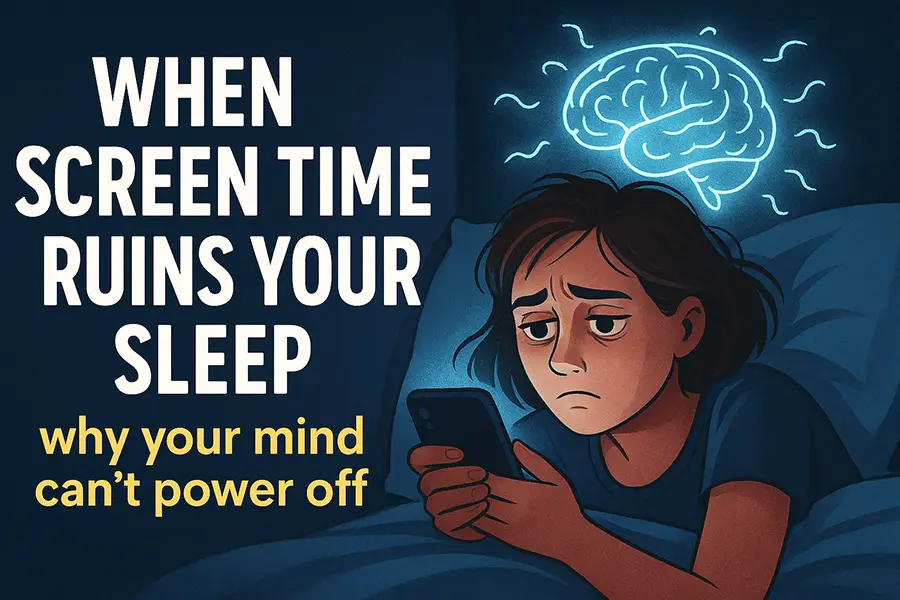

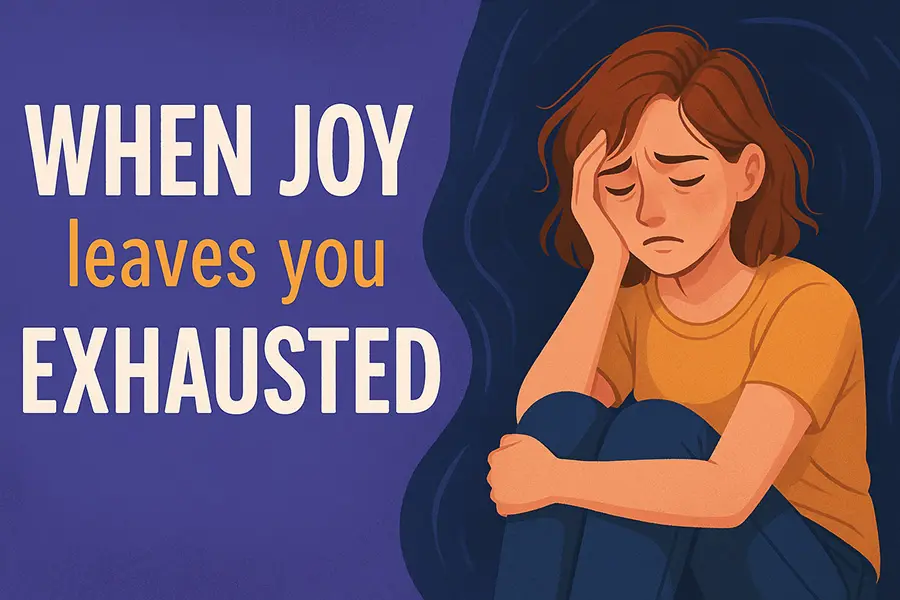
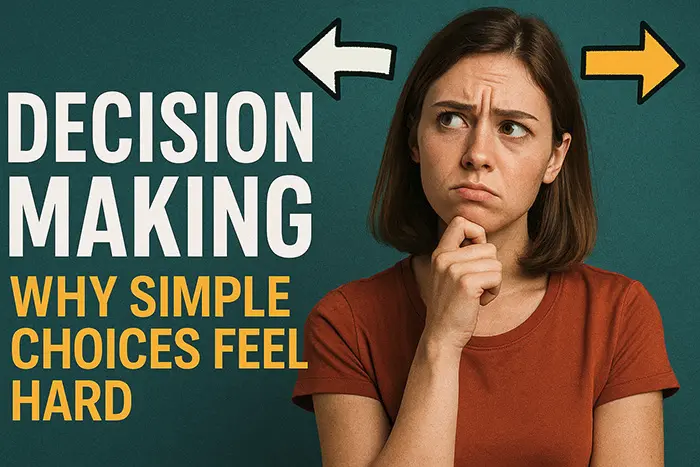
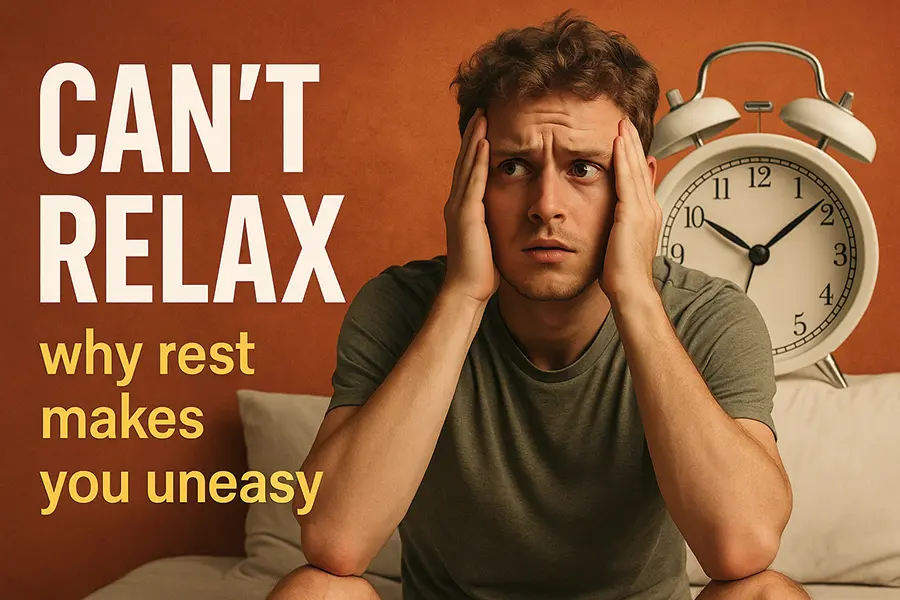
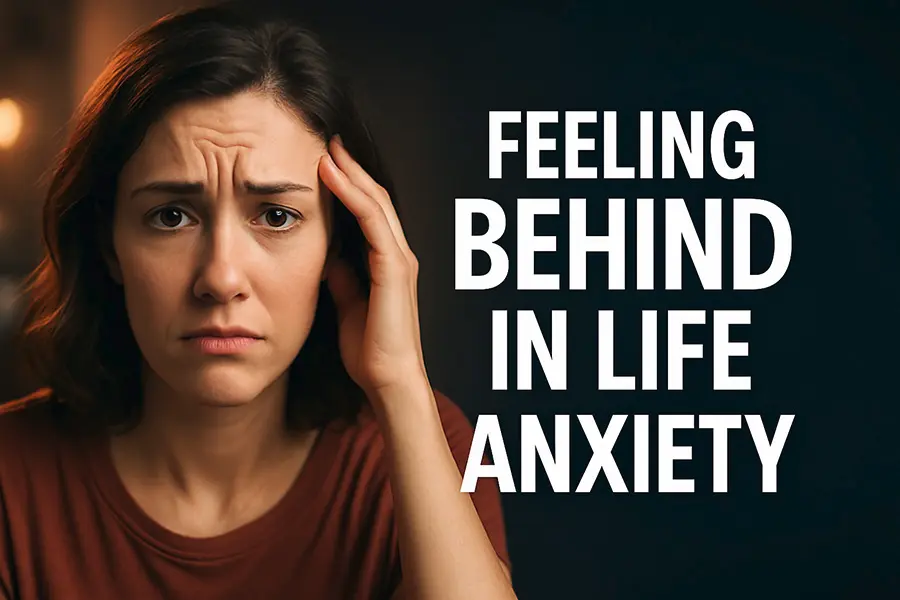
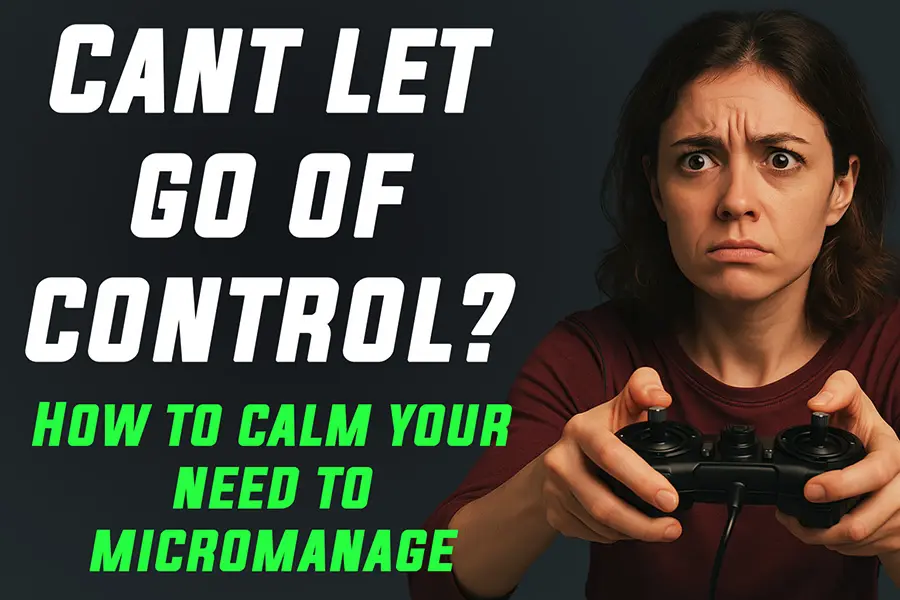
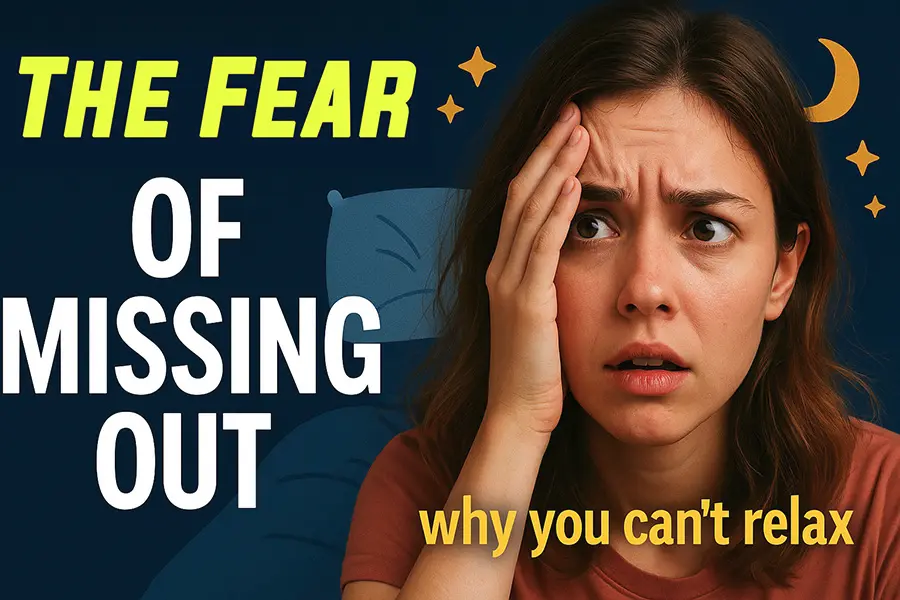













Leave a Reply